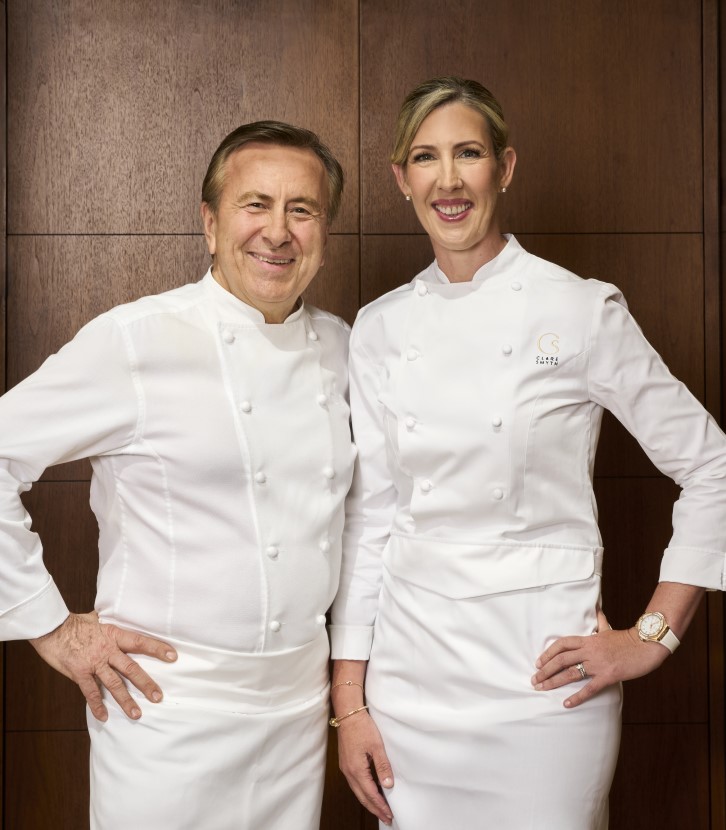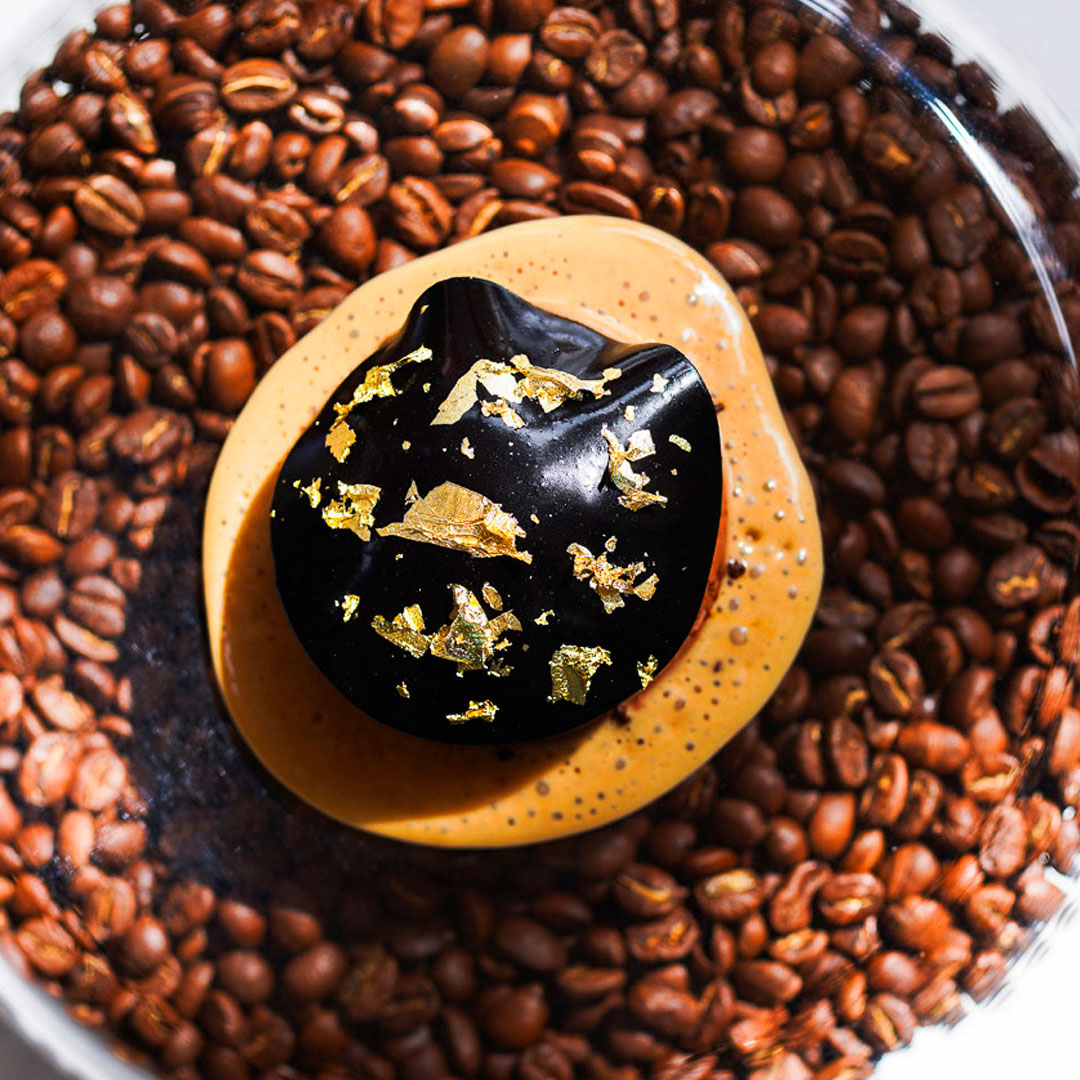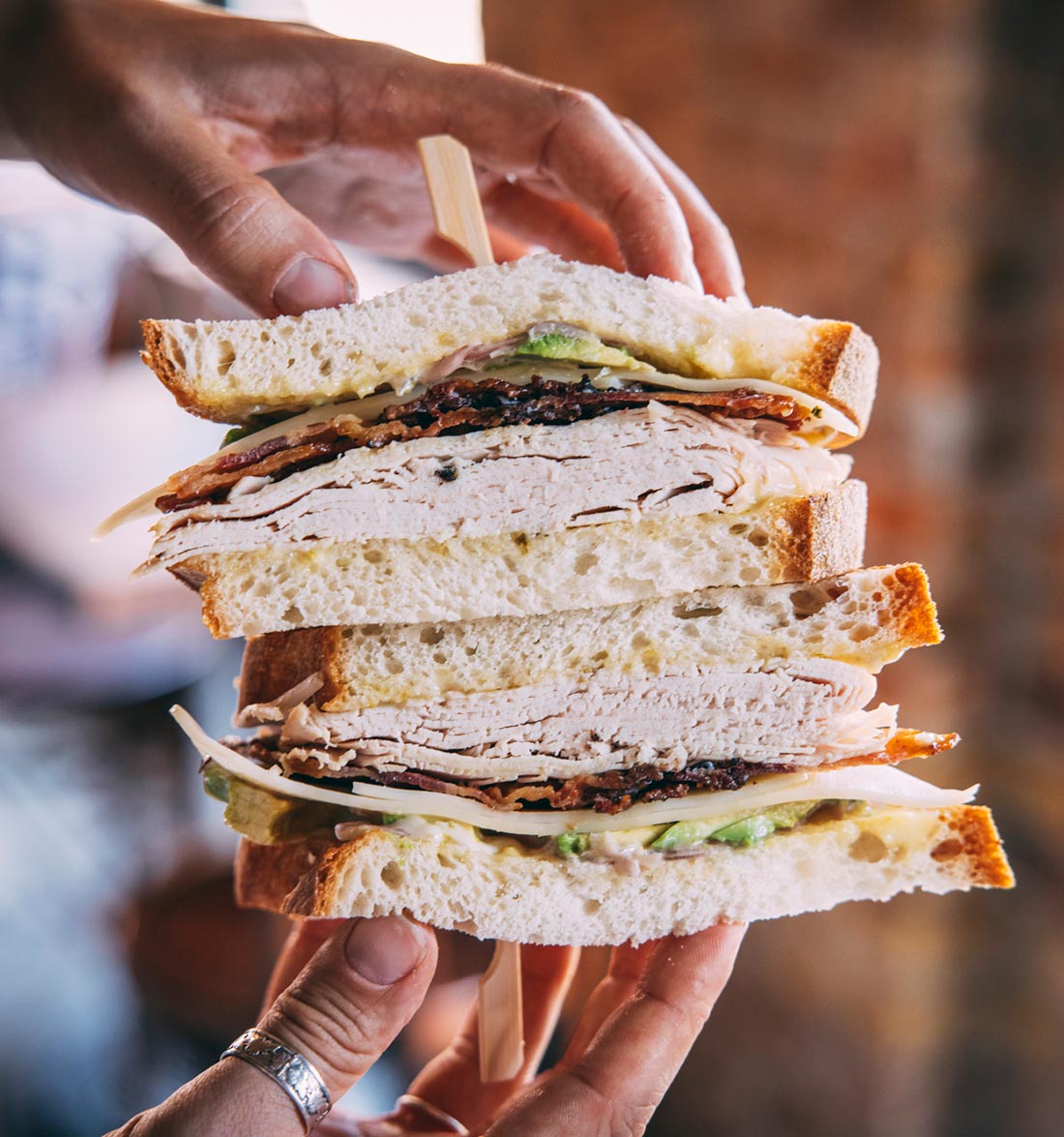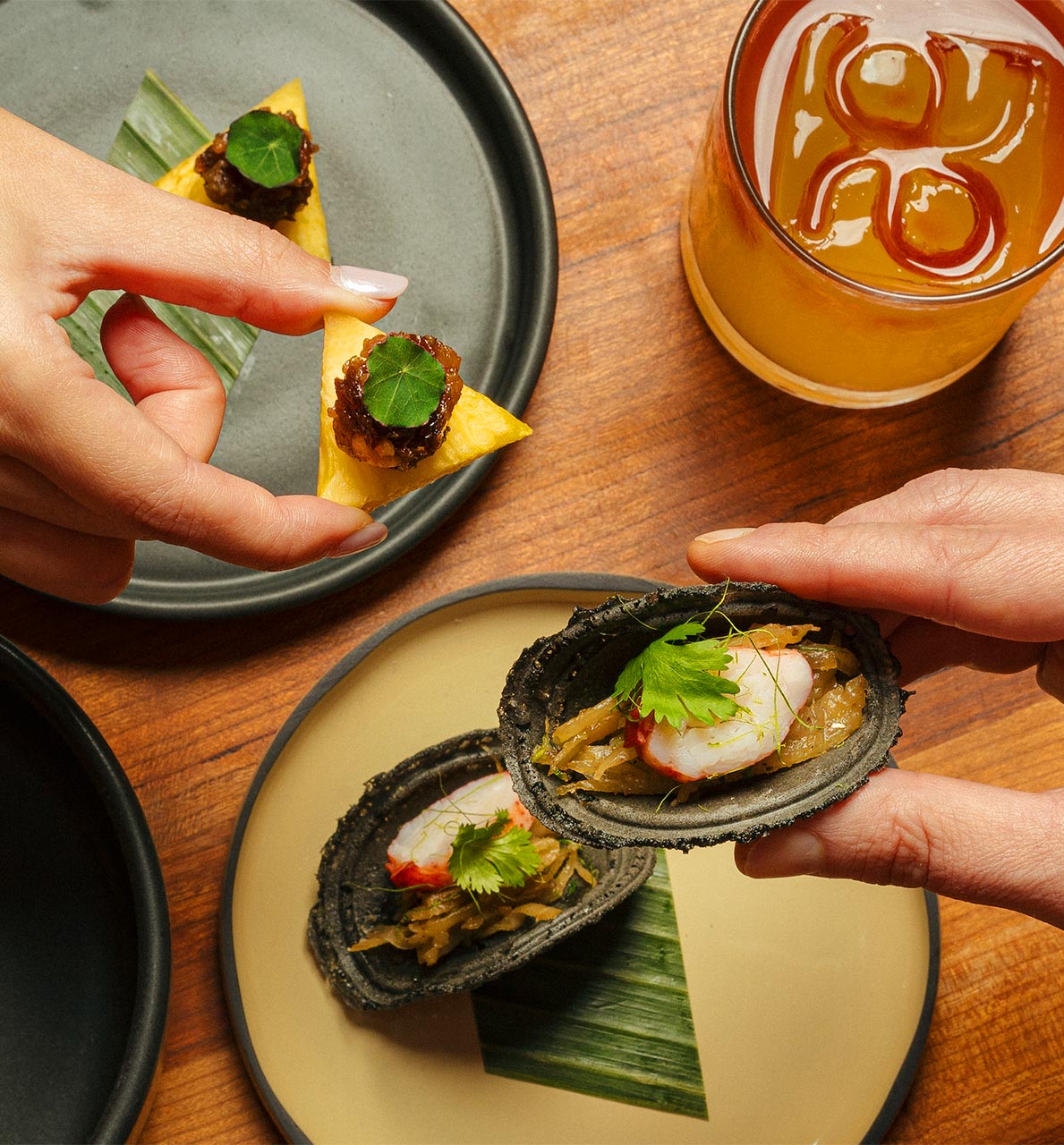“I feel like it’s been a big learning curve,” says George Mendes, chef and owner of one-MICHELIN-starred Aldea, located a hop, skip and a jump from New York City’s Union Square and its gloriously famous greenmarket. “It’s been a very big challenge full of obstacles, a test of patience and perseverance in the very early years. It’s been the definition of striving for consistency and what it takes to be consistent.”
Mendes hails from Danbury, Connecticut; the Culinary Institute of America graduate got his feet wet working for chefs the likes of David Bouley in New York, Alain Passard in Paris and Toqueville, also in New York, before he opened Aldea. “At the time, people thought we were crazy,” he says, as the country was in the crux of a serious economic crisis. “I was definitely, to say the least, concerned—but I was excited. I think the excitement of opening a restaurant and finally creating a menu and identifying who I was as a chef and cooking for New York . . . I was always under someone else’s direction, I was always a chef de cuisine or executive chef. Now I have this freedom, I have this blank canvas in my own restaurant. I have a partner who believes with me, I have a great team, let’s do this.”
Building from scratch, it took eight months to get Aldea up and running. Mendes remembers staring at the very first slabs of concrete and when the tables and seatings went up. “I thought, ‘Who’s going to come? Who’s going to sit in those seats?,’” he says. “That was the moment I was scared—the only time I felt relaxed was when I was in a kitchen. There was a sense of worry.”

Little did Mendes know that throughout its 10-year tenure, the Portuguese darling restaurant Aldea would go on to garner a slew of accolades including glowing reviews from Frank Bruni and Adam Platt, as well as a MICHELIN star, “a dream come true after cooking and training in other MICHELIN-starred restaurants in Spain,” he says. Riding a serious high, Mendes firmly believed he finally arrived in the arena he wanted to be in.
“Low points were the bills,” he adds, pointing out the grit of profit margins, managing owners' and investors’ expectations, accounting, motivating staff and learning how to respectfully discipline his employees. “I’m proud to say there wasn’t much yelling,” he says. “Mind you, we yelled early on and we could be hotheads, but I realized it wasn’t doing anyone any good.” Mendes then changed his management approach into one that was more about coaching, leading and motivating. “Let people try, let people develop, let people make mistakes. I never really understood the tyrant, red-faced shouting chef reputation.”
Mendes has also seen a shift in the industry over the last decade where chefs are turning to self-care, trading in the rockstar lifestyle for something more sustainable. When Mendes grew tired of burning the candle at both ends, he looked for a much healthier outlet. “That’s when the running started,” he says. “It was a much more prioritized aspect of my life.” Mendes signed up for local races—his first being the New York Road Runners’ Portugal Day Run, naturally. Now the avid runner has completed the New York City Marathon the last three years, and is currently training for both the Chicago and New York City Marathons this fall. (Barring a foot injury, mind you.) He’s found the sport to be particularly soothing respite from his day-to-day—even though he’ll be quick to tell you, “it’s a masochistic sport.” (For those runner nerds keeping score, he crossed last year’s New York City Marathon in a solid 3:37:26.)
Mendes's self-care routine also involves surrounding himself with chefs and mentors who motivate him in a positive way. He takes cues from Eric Ripert in keeping a calmer kitchen and sense of self. He credits David Bouley with teaching him everything he knows: “I was able to jump off his shoulders.” He firmly believes that Daniel Boulud and Thomas Keller and their Ment’or BKB Foundation are setting an example of where the industry needs to go. “There’s so many good things happening right now in the industry,” he says. “Alex Stupak—he’s a phenomenal person and chef. He’s so talented, a family man and another person that I really enjoyed watching transition from a pastry chef to opening his first restaurant. And now here he is with his Empellón empire.”
It’s this type of motivation that helps Mendes achieve what every New York City cook wants—to stay relevant. “That has been the challenge the past two to three years,” he says. “The responsibility of still operating at that level without resting on your laurels or a past or what we’ve already accomplished in a way. I think New York City right now is the toughest it’s ever, ever been to run a MICHELIN-starred restaurant. It’s the most challenging time—ever, flat out, between the labor costs, rent, you hear it all the time. I feel like I’ve learned a lot about the restaurant industry in the past 10 years, that’s for sure. It’s humbling—it’s a beast.”

Mendes stays relevant by finding a balance between adapting to diners’ eating habits, dietary restrictions and price points while remaining true to his Portuguese identity. “At the end of the day, this kind of a restaurant—a chef-driven restaurant, to clarify—is a very personal statement. . . . It’s a question I will ask myself week after week, ‘What can we offer our guests?’ We’re trying to evolve the menu again and give the customers that wow factor. And also strike a balance with being creative and giving the customer a unique experience, but also making sure that they’re nourished.”
When it comes to creating his menu items, Mendes walks a fine tightrope of developing something both aesthetically pleasing and satiating, all while managing costs and diners’ expectations. “I’ve always been a proponent of flavor versus appearance,” he adamantly states. “We’re living in an age of tweezer food. I understand it’s a tool, but to me at the end of the day, it’s about flavor. It’s not about being served in a big spoon or people are using chopsticks, tongs, whatever. They want to make sure they’re having a delicious time, that their companions are happy, they’re in great conversation and the food and service are great. That’s the whole package.”
One decade in and Aldea—and Mendes—are stronger than ever. So with everything happening in the city’s dining scene, how does Mendes keep his Aldea ship afloat? Optimism, perseverance and patience. “As my dad would say, ‘Shut up and cook.’ Just get to work,” he says. “At the end of the day, hard work pays off and everything falls into place.”
Photos courtesy of Aldea.









_HERO_THUMB_363_X_484.jpg)


